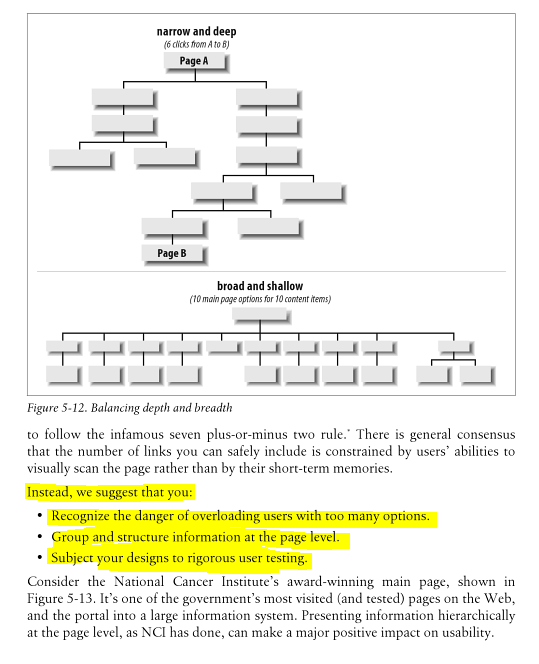I remember reading recently some studies (lot of them pretty old) that claimed that in general it is better to go with wide and shallow information architecture rather than narrow and deep. However now I can't find, can anyone point them to me? I even remember reading chapter in some book about this, which referenced several of the studies.
Edit: Thanks for the tips. I misremembered, it wasn't a book and it was more about menu structures. The article I was searching for is http://www.humanfactors.com/downloads/apr032.htm

